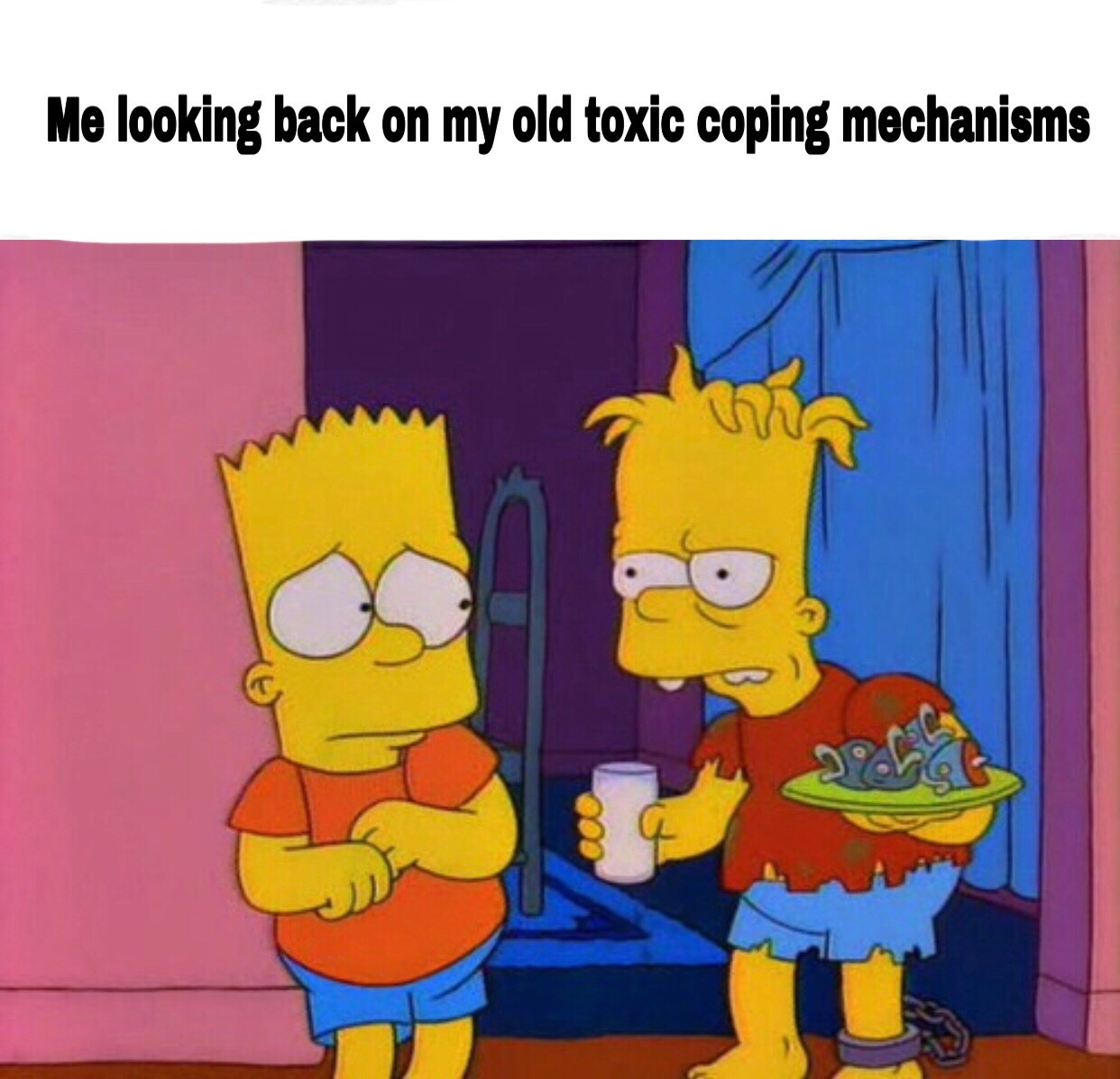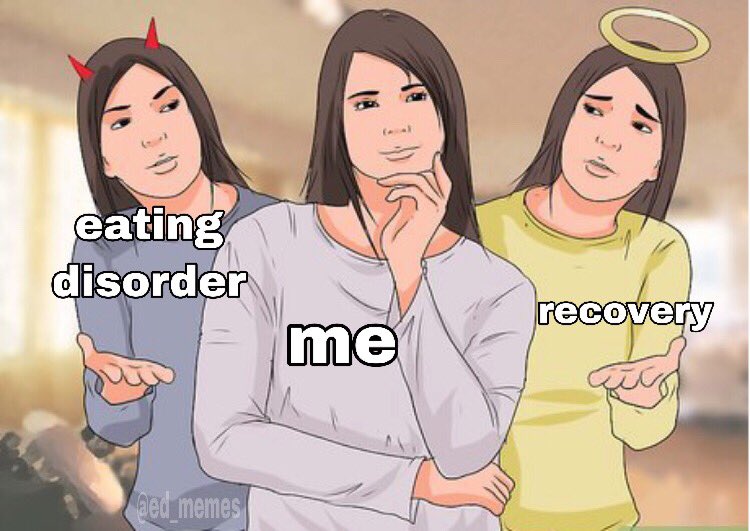
Last Thursday, I discharged from treatment for the last time. I am determined to make this my last discharge. Last time I had an official discharge it was after eight weeks of intensive outpatient and I relapsed a month later. I'll lay out the timeline for you.
New Year's Eve of 2018 I had an intake in New York. They recommended I step into Intensive Outpatient (IOP) as soon as I return to Boston. For the first eight weeks of my sophomore spring semester, I walked 20 minutes to treatment and then 20 minutes back three times a week for three hours each day, not including seeing my therapist and
dietician there outside of programming hours. I discharged from that level of care in March. I was in IOP for eight weeks.
After leaving, I relapsed and fell into old habits and took on new habits like calorie counting and using coffee as a hunger suppressant. In April, a therapist told me to go into residential, I said no. I had a month left of school and I wasn't willing to leave. So I entered Day Treatment Program (DTP), also known as Partial Hospitalization Program (PHP). I stayed in DTP at the Boston site until mid-May. I begged my therapist to let me stay in DTP and not send me to residential. Once my finals were over, she told me I had to go. I said no once again. I had a trip planned for the end of May I wasn't willing to give up. The compromise was that I would continue treatment in New York and then go to residential after my trip. I was in DTP there for four weeks.
In New York, I was doing a lot
better. So much better that my treatment team considered not sending me to residential after a few weeks. But there is nothing for me in New York, no matter how much I try I can't find a purpose when I'm there. I begged my therapist to send me to residential because I would rather be in a residential treatment facility than in New York. In early June, I left New York City for Philadelphia. I was in DTP in New York for four weeks.
I don't like to think about my time in residential. It's not a fun summer getaway or summer camp like we would joke it was. I did really well during my first two weeks. Then my anxiety got the better of me and every other day I was
either vomiting I was so anxious or having a panic attack. This went on for two weeks until I got on more medication. After my new meds kicked in, I started to do better and show a lot of progress. I got to see my family once a week
at best. One thing I missed the most was my music. I had to move my room four times. I grew a lot. I was in residential for six and a half weeks.
I went back into DTP. But my anxiety got terrible again, and I was vomiting at least once a day every day for seven weeks. No doctor could tell me what was wrong with me. I ended up going to the ER, and they dismissed me and gave me medication that didn't work. While back at the New York site, I tried my best to continue my recovery while in this state of constant illness. All I wanted to do was go back to Boston and be where I feel at home. I was in DTP for four weeks this time around. I then went to the Boston site's DTP for one week.
Finally, I was back in IOP.
At this point, I was exhausted from treatment. I had already done one round of IOP, two full rounds of DTP, and a stay at residential. I just wanted to
be done. By my second week, I felt like if I had discharged, I would be fine. But my insurance gave me a certain number of days and my therapist wanted me to use all of them. I sat through the same group therapy sessions week after week, looking forward to the one day of art therapy I got a week. Last time I discharged from
IOP I was terrified. This time I was ready. After seven
weeks I discharged from IOP once again.
I spent 34 weeks of 2019 in treatment. It's not the most exciting way to spend the year. I wish I didn't have to go through all of that, but I'm glad I did. I used to have this metaphor about how recovery is a marathon. The marathon goes through the woods; you don't know the
trail; you don't have a map, you've never trained, sometimes you need to walk, at one point you twisted your ankle. The finish line is there though. No matter how long
it takes you to run the
marathon the finish line will always be there. The finish line is so close for me. I'm at the point in the marathon where I
start to run faster and harder because I see that finish line.
 It's been a while once again since I posted, but I felt this was relevant. I want to talk about relapse. I know this quarantine hasn't been fun for anyone. I know it has been especially tough for people that struggle with eating disorders. Quarantine has brought on relapse for many people, including myself. I'm embarrassed to say it. But I've relapsed. The signs started to show when I was on my own for a lot of meals in England. I wouldn't finish all of it or maybe I would miss breakfast once a week. I also didn't have a care team in place. Things got nasty when I had to come home from my study abroad and suddenly I was with my thoughts for most of the day. I gave my eating disorder space to breathe, let her come back into my life. Come back, she did. She came back in full force and wrecked my mental health. Now I'm going back to residential. I'm both upset and glad I reached out for help. I don't really want to get better, but I know life is better when I'm in recovery.
It's been a while once again since I posted, but I felt this was relevant. I want to talk about relapse. I know this quarantine hasn't been fun for anyone. I know it has been especially tough for people that struggle with eating disorders. Quarantine has brought on relapse for many people, including myself. I'm embarrassed to say it. But I've relapsed. The signs started to show when I was on my own for a lot of meals in England. I wouldn't finish all of it or maybe I would miss breakfast once a week. I also didn't have a care team in place. Things got nasty when I had to come home from my study abroad and suddenly I was with my thoughts for most of the day. I gave my eating disorder space to breathe, let her come back into my life. Come back, she did. She came back in full force and wrecked my mental health. Now I'm going back to residential. I'm both upset and glad I reached out for help. I don't really want to get better, but I know life is better when I'm in recovery.




